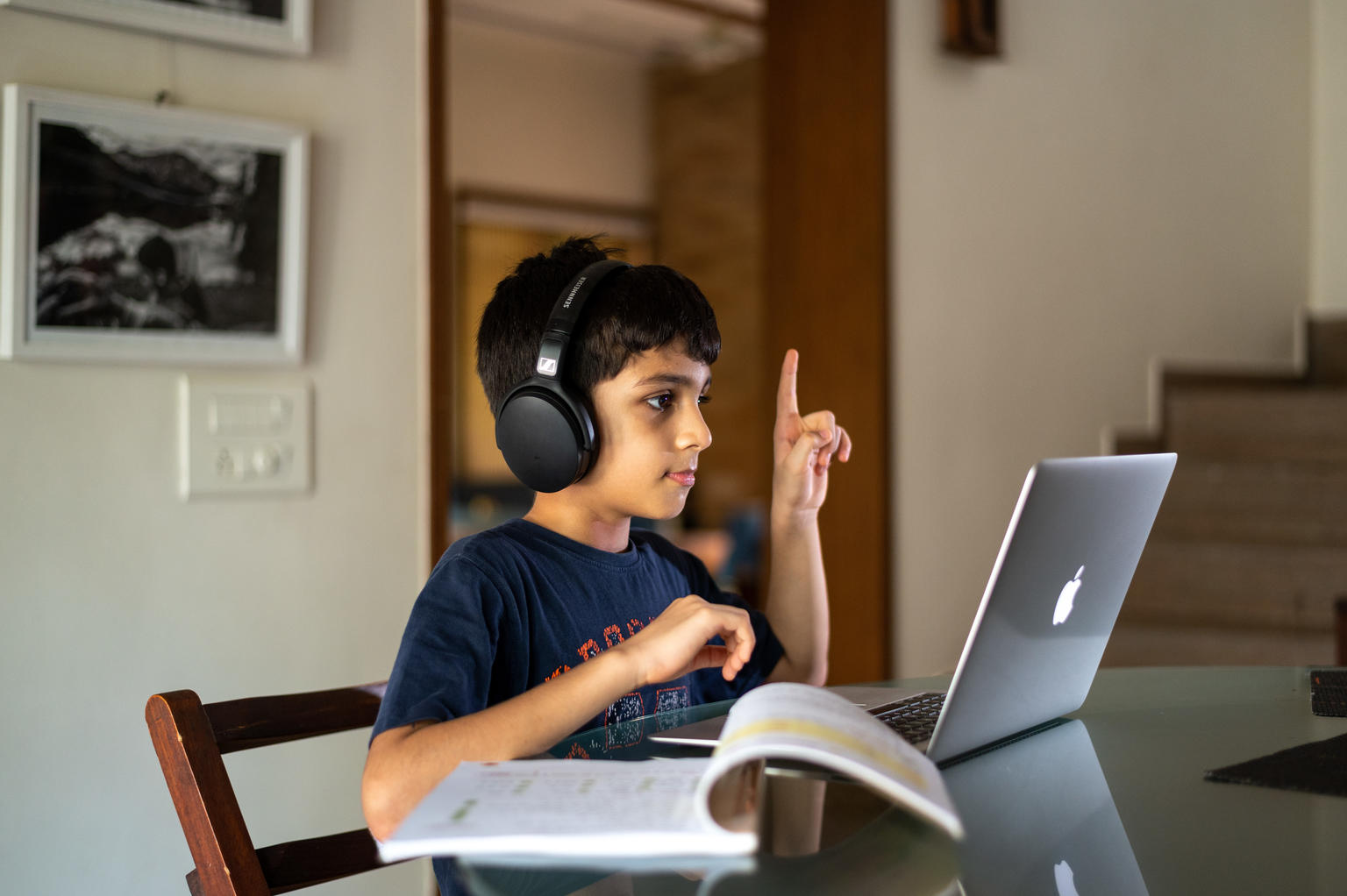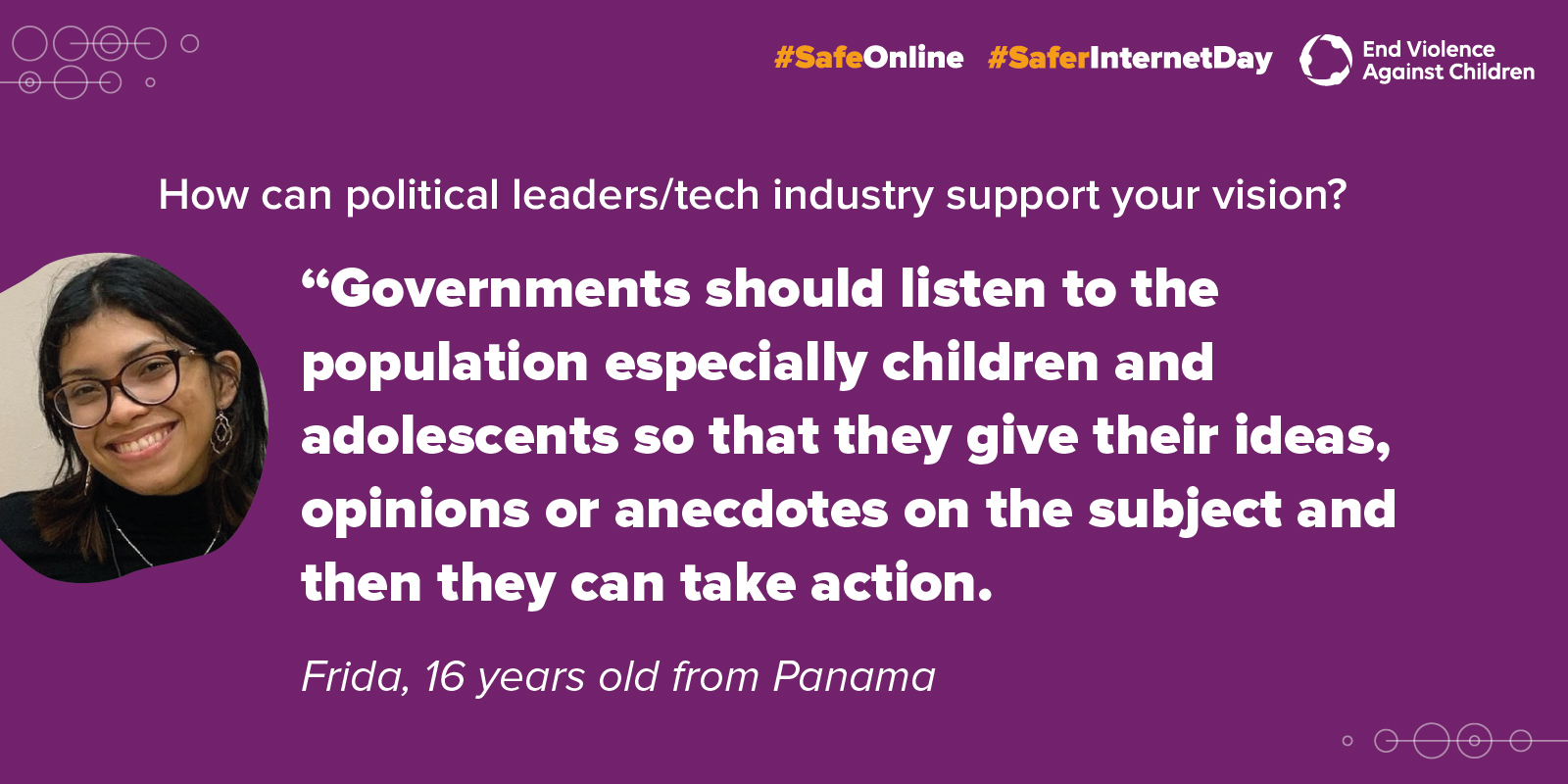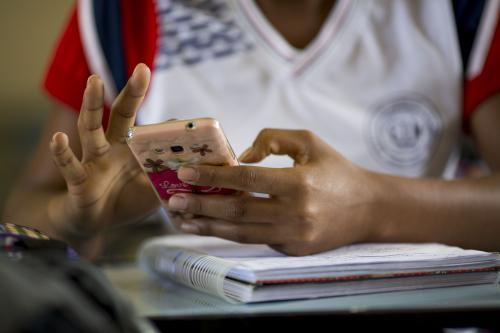
Safer Internet Day, on 7 February, is a day for the international community to collectively advocate for a safer, better internet, where everyone is empowered to use technology ‘responsibly, respectfully, critically and creatively’.
With the host of opportunities that the internet brings to children, it also presents new threats to safety. Online child sexual exploitation and abuse (CSEA) is the fastest-growing form of violence against children. In 2022, the Internet Watch Foundation recorded 63,050 reports related to imagery which had been created of children aged 7-10 – a 1,058 per cent increase since 2019. As the digital landscape grows increasingly complex, we need policies and solutions that enable children to explore opportunities while keeping them safe in the online world.
Through the Safe Online Initiative, the End Violence Partnership is working with and through partners to make the internet safe for children and is actively working to fill gaps in resources, data and evidence, programs and technology solutions. This Safer Internet Day, End Violence is bringing the perspectives and solutions of children to the front – amplifying their calls to action for government and the tech industry and spotlighting the innovative efforts set in place to address online harm.
How children want to be #SafeOnline
On Safer Internet Day, Gitanjali Rao, Innovator and the 2020 Time Kid of the Year, will takeover End Violence’s social media. The young End Violence Advocate has designed and created an app to keep kids safe from cyber-bullying and will share solutions and calls to action, for and by teenagers and children.
Safe Online also spoke to four children from around the world, Aisha (15) from Mauritius, Busisa (17) from South Africa, Frida (16), from Panama, and Lucia (18) from Ecuador, who are interning with Safe Online Partner Arigatou International. We asked each of them about their online experience, what they think a safer internet looks like and how their vision can be supported.
These children shared innovative and exciting solutions from having ways to block inappropriate content to awareness and education programmes, cyber safety tips and stronger internet safety rules. They stressed that the government, tech industry and other stakeholders must make sure that young voices are included in policy debates, and shed light on how children’s vision for a safer internet can be better supported.

Solutions – investing in data and innovation for a safer internet
End Violence is working to provide actionable data to tackle online violence through significant investments and global advocacy. End Violence is the world’s largest non-governmental funder dedicated to ending online child sexual exploitation and abuse. In the last six years, we have invested nearly US $71 million in over 89 projects with impact in over 75 countries across the globe.
End Violence’s Safe Online initiative is leading pioneering work on evidence generation. The large-scale, multi-country Disrupting Harm (DH) project, which aims to understand the scope and nature of online child sexual exploitation and abuse and how existing national child protection systems are responding, reached out to over 13,000 children across 13 countries to understand their experiences on online CSEA. The partnership with Tech Coalition is also investing in knowledge to help design products and services that keep children safe online.
And through grants around the world, Safe Online is funding innovative technology solutions to fight online child sexual exploitation, such as:
- A chatbot in India, designed in consultation with young people themselves, to understand their needs and educate them on online CSEA
- An Educational digital ‘game’ that has been developed to empower children and young people across Thailand and Cambodia on how to better keep themselves safe online.
- The new Deafkidz Defenders programme launched in Pakistan and South Africa, designed to teach deaf and hard-of-hearing children how to better recognise abuse, say no and seek help. It is a package of child-friendly online animations on online safety developed with input from various experts including child protection officers, deaf teachers and online digital specialists.
New strategies and legislation are also coming up to better protect children.
In a crucial development for prioritising children’s safety on the global agenda, G7 Leaders have collectively committed to stepping up efforts to prevent and combat child sexual exploitation and abuse, with specific commitments around online safety of children. This marks important progress in taking forward the implementation of the G7 Action Plan to combat Child Sexual Exploitation and Abuse announced in September 2021, including through support for the End Violence Partnership.
The new proposed EU legislation on preventing online violence against children is set to make detection, reporting and removal of child sexual abuse material mandatory for all internet service providers and platforms. The legislation presents an exceptional opportunity for the EU to set high standards to protect children online through policy action. 14 organisations, including the End Violence’ Safe Online initiative have launched a global advocacy campaign to support the European Commission’s proposal for its groundbreaking proposed legislation on online CSEA. Read more about the #ChildSafetyOnlineNow campaign.
Safe Online Initiative also initiated a critical conversation on the need for robust, and comprehensive data to tackle online CSEA. Organised in November 2022, in partnership with the European Parliament and the WeProtect Global Alliance, the Safe Digital Futures event saw over 100 stakeholders from government, civil society and industry gather to discuss the roadmap for streamlining data to tackle online CSEA.
In addition, the new European strategy for a better internet for kids (BIK+), adopted in May 2022, aims to ensure that children are protected, respected and empowered online in the new Digital Decade, in line with European Digital Principles. The vision is for age-appropriate digital services, with every child in Europe protected, empowered and respected online,
Image: © UNICEF/UNI355769/Panjwani

